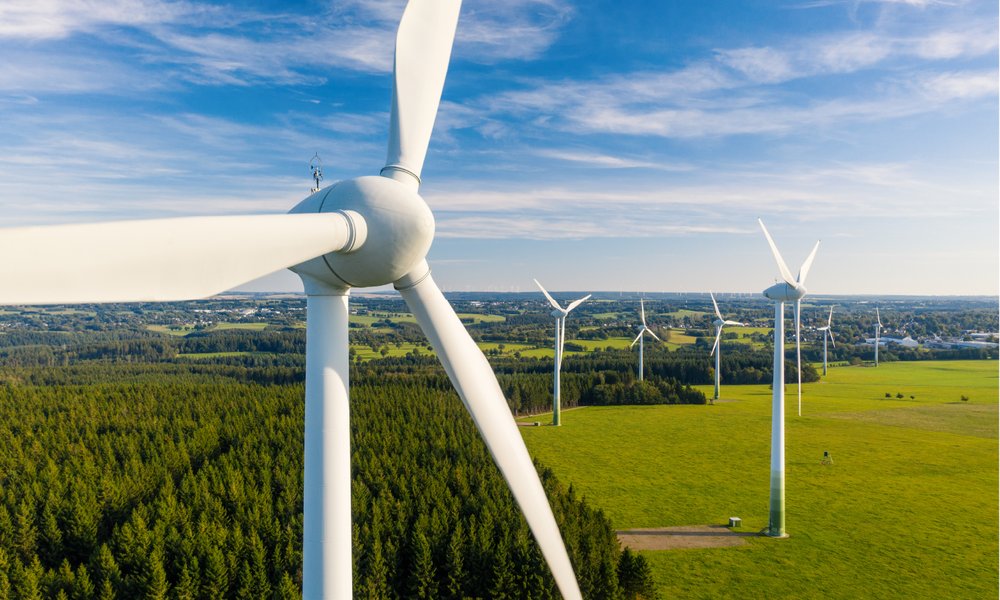The energy source with the least impact on the environment has become the focal point around the globe, where sustainability is a key concern. These options include carbon energy systems, which are now one of the best and most effective solutions. The essence of this article will be to examine the significance of investing in such systems by identifying the benefits, value addition, and recovered carbon black price.
What is carbon energy?
Carbon energy systems entail the application of carbon-based materials as sources of energy. The majority of these systems use natural gas, coal, or biomass as their fuels. Although they release carbon emissions during operations, the main aim is to employ technology that traps and keeps these emissions away from the environment.
The advantages of investing in carbon energy systems
Environmental Impact and Emissions Reduction
Carbon energy systems have numerous benefits, one of which is their ability to minimize various emissions that cause global warming. Modern systems, through the application of advanced technologies, are able to capture and store carbon generated during the power production process. In the implementation of these new generation systems, the net carbon footprint would be heavily reduced, making the world less toxic for human beings and other living organisms. The reduction in greenhouse gas emissions is not just an emergency measure towards environmental issues; it also greatly assists in tackling the effects of global climate change and ensures a healthy planet for generations to come.
Resource Utilization and Circular Economy
A circular economy concept is integral to carbon energy systems and, ultimately, sustainability. This system is based on the recovery and further reusing of various materials, like recovered carbon black, which stands as a base corner stone. Just like recovered carbon black, these materials are highly flexible and can be effectively used as fillers in many industrial and production operations with minimal waste and improved resource efficiency. This move symbolizes the intention to minimize the effects on the environment, as well as being environmentally conscious in the use of resources and in making production processes more effective.
Economic Viability
It is also economical to invest in carbon energy systems, for they also have environmental benefits. The use of recovered carbon black in these systems signifies the cost-effectiveness of these systems, making them a good investment option. This economic viability is highly important, and initiatives such as Birla Carbon Continua play a vital role in it. They emphasize continuous development, which reduces costs. Sustainability becomes an economically viable option due to this continuous improvement in cost-effectiveness.
Energy security and reliability
The carbon energy system is important for ensuring energy security through a diversity of energy sources. Unlike some renewable energy sources, which are highly dependent on changing weather conditions, carbon-based systems offer an assured, reliable energy supply. Moreover, this reliability is vital for guaranteeing general energy safety, decreasing dependence on one source of energy, and providing enhanced assurance within the sector of energy power. This resilience becomes pivotal in maintaining the continuity and consistency of electricity supply, which are important for different sectors and industries during periods of high energy demand.
Technological advancements and innovation
Carbon energy system investments continue to revolutionize technology, promoting creativity in the industry. The solutions continue to advance towards revolutionary approaches that result in increased production of energy with better efficiency. Projects like birla carbon continua represent a firm effort towards the improvement of technology within the carbon production field. Dedication towards innovation in this field enhances energy system efficiency and contributes greatly to sustainable development towards a green technology-based future.
Employment Opportunities and Economic Growth
Carbon energy systems also provide a viable option for investments as they support green practices and create a myriad of job opportunities. There needs to be a highly skilled workforce to aid in the development, implementation, and maintenance of these systems. Also, the growth of related business sectors for used carbon black manufacturing and applications creates job opportunities. Besides, this job creation helps in economic development and gives locals a stable working opportunity.
Grid Stability and Energy Independence
Carbon energy system integration plays a crucial role in reinforcing power grids. Through a consistent and dependable energy supply, these systems bolster the stability of electrical grids, ensuring an unbroken flow of electricity. Moreover, the diversified energy mix fosters enhanced energy independence for regions and nations, thereby fortifying their resilience against disruptions in energy supplies and contributing to a more robust and secure energy infrastructure.
Versatile Application and Adaptability
Carbon-energy systems exhibit flexible application and responsiveness from sector to sector. Besides energy production, recovered carbon black is applicable in many industries like rubber manufacturing, plastics, and construction materials, among others. Hence, this adaptability demonstrates the flexibility of carbon-based systems, which can find various appropriate solutions in different industries. This is an indication that these systems can be adjusted to cater for energy in many other sectors, which increases their significance in various fields and uses.
Carbon neutrality and sustainable development goals
The carbon neutrality concept and the sustainable development agenda would not be complete without the inclusion of carbon energy systems. These systems are aimed at ensuring that there is a decreased accumulation of greenhouse gases in the atmosphere by concentrating on the capture and storage of carbon emissions. This coordinated move contributes to the global sustainability agenda by specifically tackling climate change concerns and working towards achieving world sustainability objectives.
Conclusion
Ultimately, capitalizing on carbon energy technologies holds numerous advantages. These systems are reliable ways of dealing with environmental concerns through substantial emission reduction. Apart from that, circular economy principles implemented in these systems, for instance, carbon black recovery, exemplify resource efficiency and waste reduction. These systems are economically viable because the Birla Carbon Continua initiative makes innovations and cost effectiveness possible.
In addition, the carbon energy system’s reliability ensures energy adequacy, which is characterized by constant and stable energy sources. The continuous innovation and upgrading of technology in this field are clear indications of the emphasis on sustainable development and enhancement.








